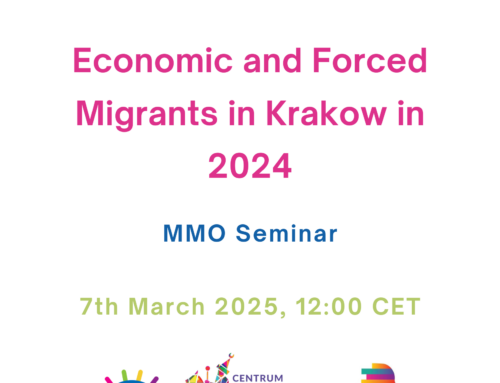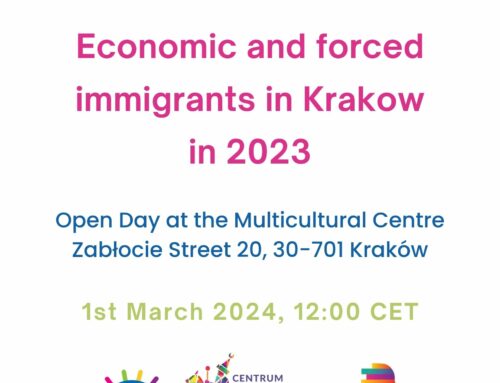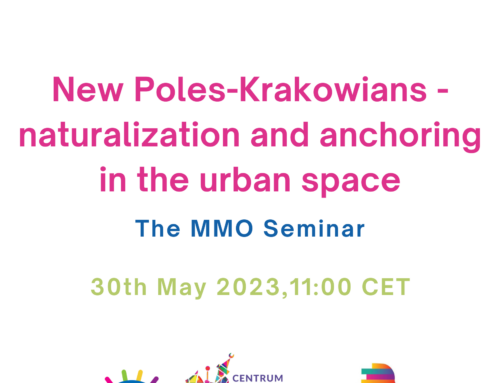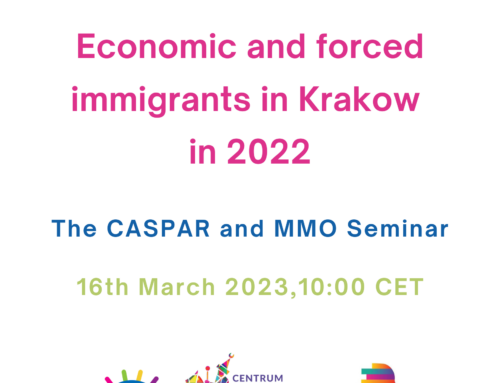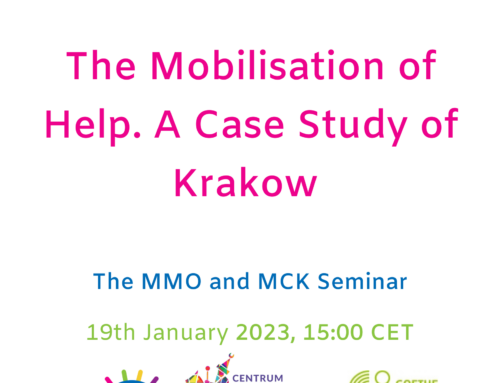We kindly invite you to our next Zoom seminar. Oleg Yarosh, Konrad Pędziwiatr, Dobrosława Wiktor-Mach, Karolina Sobczak-Szelc, Patrycja Trzeszczyńska, Olena Babakova, Karolina Czerska-Shaw, Inga Hajdarowicz and Dominik Wach will speak about past trends and current challenges of ukrainian migrations.
The Russian aggression on Ukraine has led to the largest forced migration flows in Europe since WWII. The war causes humanitarian catastrophe and refugee crisis, as millions of people search safety outside of Ukraine. The UNHCR estimates that during the first nine days over 1,500 million of people fled Ukraine, and the number may quickly increase to 4 million if the war continues. Most refugees went to the neighboring countries and the majority, over 57%, crossed the border with Poland. While the war has disrupted previous patterns of migration from Ukraine and its’s hard to predict how the situation will unfold, it is important to discuss the migration crisis from both current and past perspectives.
In the first part of the seminar the key findings from the FUME project case study carried out in 2021 among internal migrants who had come to Kyiv during the last 15 years will be briefly presented. The aim of the research was to explore the pre-war modalities of Ukrainian migrations and the complexity of interrelations between historical, economic, cultural, social and demographic factors in the migration decision-making. Although work and education used to be the main motives of migration, political factors have played role since 2014 and the Russian annexation of Crimea and the war in the Donbas region. Social networks turned out to be crucial in shaping both internal and international paths of migration. In the current crisis, the presence of the Ukrainian diaspora in many European and non-European countries (estimated globally by UNHCR at 6,1 million) will surely play a significant role in the migration decision-making, and in the refugee destination settlements, in particular.
The second and major part of the seminar will be devoted to discussion of current situation of refugees from Ukraine in Poland. The perspective of the city of Krakow and Warsaw will be also explored to show local efforts to help refugees and to discuss emerging challenges. Some of the questions that will be addressed by the panelist are:
– What are the key factors shaping the current migration flows from Ukraine?
– What do we know about the current migrations from Ukraine and what is unknown?
– How specific is the Ukrainian migration from the gender perspective?
– How many of the refugees who came to Poland will stay in the country and which factors will shape these decision-making processes in the short, medium and long term perspectives?
– What are the pros and cons of the assistance framework in Poland?
– How the refugees are being assisted while arriving to Polish cities (cases of Krakow and Warsaw)?
– What mistakes made in other cases of refugee crisis management should be avoided?
– What are the best practices in managing so large forced migration flows?
The seminar is organized in the framework of the project FUME Future migration scenarios for Europe (Horizon 2020)”, funded by the Horizon 2020 Programme of the European Union. In previous webinars, we have presented the Tunisian and Iraqi case studies. In the future, Senegalese case will be discussed as well.


